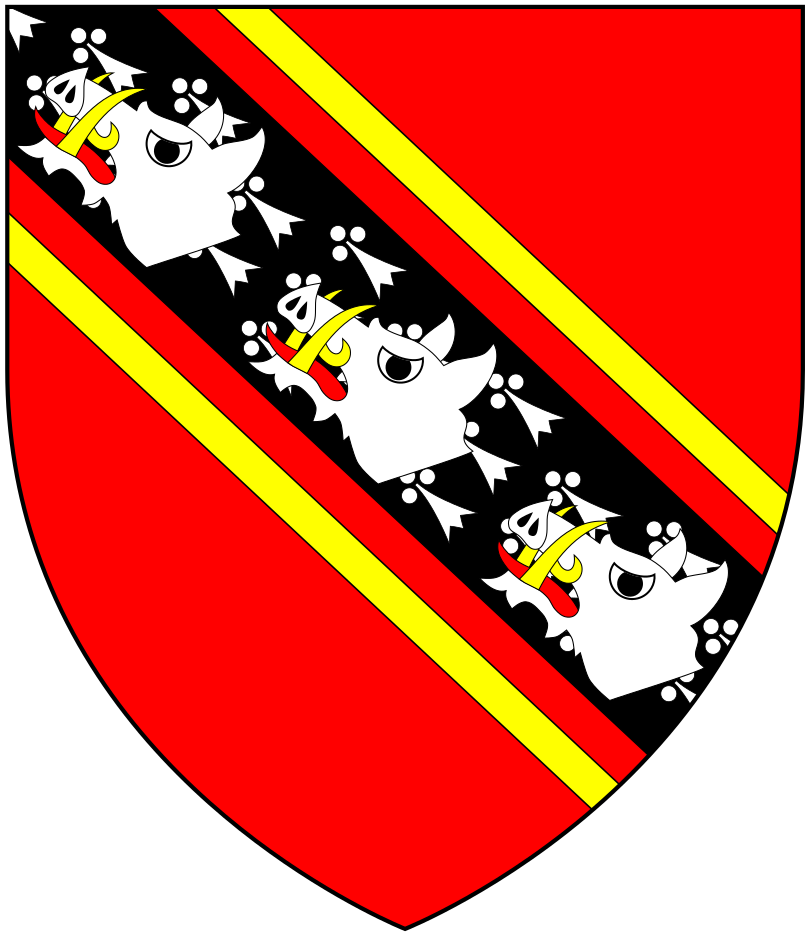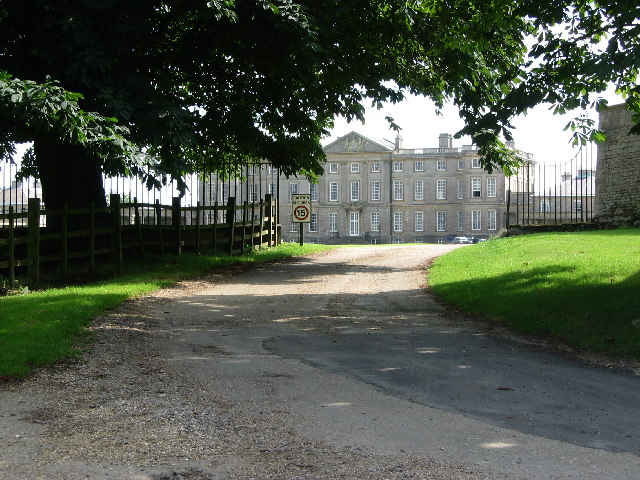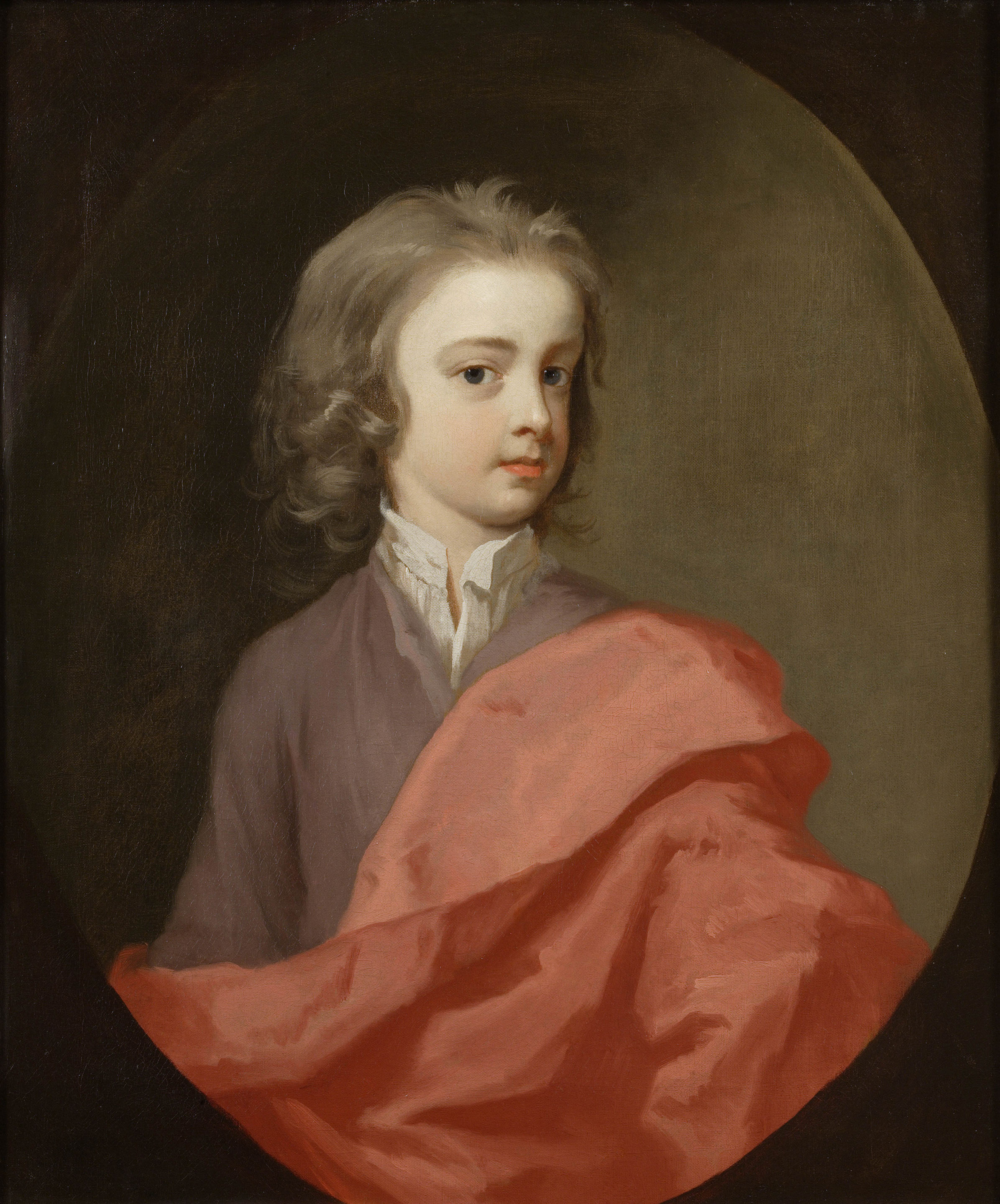|
Carteret Ministry
The Carteret ministry was the Whig government of Great Britain that held office from 1742 to 1744, following the defeat of the Walpole ministry by a margin of one vote. The nominal head of the ministry was Spencer Compton, 1st Earl of Wilmington, until his death in 1743. He was succeeded in the role of prime minister by Henry Pelham. The ministry derives its name from John Carteret, 2nd Baron Carteret. He served as Northern Secretary throughout until his resignation, having been the mainstay of whom the respective prime ministers were dependent for support. Ministry Notes References * * * * Further reading * {{Kingdom of Great Britain British ministries Government A government is the system or group of people governing an organized community, generally a state. In the case of its broad associative definition, government normally consists of legislature, executive, and judiciary. Government i ... 1742 establishments in Gre ... [...More Info...] [...Related Items...] OR: [Wikipedia] [Google] [Baidu] |
John Carteret, 2nd Earl Granville By William Hoare
John is a common English name and surname: * John (given name) * John (surname) John may also refer to: New Testament Works * Gospel of John, a title often shortened to John * First Epistle of John, often shortened to 1 John * Second Epistle of John, often shortened to 2 John * Third Epistle of John, often shortened to 3 John People * John the Baptist (died c. AD 30), regarded as a prophet and the forerunner of Jesus Christ * John the Apostle (lived c. AD 30), one of the twelve apostles of Jesus * John the Evangelist, assigned author of the Fourth Gospel, once identified with the Apostle * John of Patmos, also known as John the Divine or John the Revelator, the author of the Book of Revelation, once identified with the Apostle * John the Presbyter, a figure either identified with or distinguished from the Apostle, the Evangelist and John of Patmos Other people with the given name Religious figures * John, father of Andrew the Apostle and Saint Peter * Pope John ... [...More Info...] [...Related Items...] OR: [Wikipedia] [Google] [Baidu] |
John Carteret, 2nd Earl Granville
John Carteret, 2nd Earl Granville, 7th Seigneur of Sark, (; 22 April 16902 January 1763), commonly known by his earlier title Lord Carteret, was a British statesman and Lord President of the Council from 1751 to 1763; he worked extremely closely with the Prime Minister of the country, Spencer Compton, Earl of Wilmington, in order to manage the various factions of the Government. He was Seigneur of Sark from 1715 to 1720 when he sold the fief. He held (in absentia) the office of Bailiff of Jersey from 1715 to 1763. Origins He was the son and heir of George Carteret, 1st Baron Carteret (1667–1695), by his wife Lady Grace Granville (c. 1677–1744), ''suo jure'' 1st Countess Granville, 3rd daughter of John Granville, 1st Earl of Bath (1628–1701) of Stowe House in the parish of Kilkhampton in Cornwall. The progeny of this marriage, Barons Carteret, Earls Granville, and Marquesses of Bath (Thynne), were co-heirs to her childless nephew William Granville, 3rd Earl of Bat ... [...More Info...] [...Related Items...] OR: [Wikipedia] [Google] [Baidu] |
Paymaster Of The Forces
The Paymaster of the Forces was a position in the British government. The office was established in 1661, one year after the Restoration (1660), Restoration of the Monarchy to King Charles II, and was responsible for part of the financing of the British Army, in the improved form created by Oliver Cromwell during the Commonwealth of England, Commonwealth. The full title was Paymaster-General of His Majesty's Forces. It was abolished in 1836, near the end of the reign of King William IV, and was replaced by the new post of Paymaster General. History The first to hold the office was Sir Stephen Fox (1627–1716), an exceptionally able administrator who had remained a member of the household of King Charles II during his exile in France. Before his time, and before the English Civil War, Civil War, there was no standing army and it had been the custom to appoint treasurers-at-war, ''ad hoc'', for campaigns. Within a generation of the Restoration, the status of the paymastership b ... [...More Info...] [...Related Items...] OR: [Wikipedia] [Google] [Baidu] |
Richard Edgcumbe, 1st Baron Edgcumbe
Richard Edgcumbe, 1st Baron Edgcumbe, (23 April 168022 November 1758) of Mount Edgcumbe in Cornwall, was an English Whig politician who sat in the English and British House of Commons from 1701 until 1742 when he was raised to the peerage as Baron Edgcumbe. He is memorialised by Edgecombe County, North Carolina. Origins He was the son of Sir Richard Edgcumbe and Lady Anne Montagu, daughter of Edward Montagu, 1st Earl of Sandwich. Career In 1694, at the age of 14, Edgcumbe succeeded his brother, Piers Edgcumbe, in the family estates. He was admitted at Trinity College, Cambridge in 1697 and travelled abroad in 1699. Edgcumbe was returned unopposed as MP for Cornwall at a by-election on 25 June 1701 but never took his seat as Parliament had been prorogued. At the general election later in 1701, he was returned unopposed as MP for St Germans. Edgcumbe was elected MP for Plympton Erle at the 1702 English general election, probably on the Treby interest. He was re-elected at ... [...More Info...] [...Related Items...] OR: [Wikipedia] [Google] [Baidu] |
Chancellor Of The Duchy Of Lancaster
The chancellor of the Duchy of Lancaster is a ministerial office in the Government of the United Kingdom. The position is the second highest ranking minister in the Cabinet Office, immediately after the Prime Minister, and senior to the Minister for the Cabinet Office. The role includes as part of its duties the administration of the estates and rents of the Duchy of Lancaster. Formally, the chancellor of the Duchy of Lancaster is appointed by the Sovereign on the advice of the prime minister, and is answerable to Parliament for the governance of the Duchy. In modern times, however, the involvement of the chancellor in the running of the day-to-day affairs of the Duchy is slight, and the office is held by a senior politician whose main role is usually quite different. In practical terms, it is a sinecure, allowing the prime minister to appoint an additional minister without portfolio to the Cabinet of the United Kingdom. In September 2021 the role was endowed with responsibilit ... [...More Info...] [...Related Items...] OR: [Wikipedia] [Google] [Baidu] |
Daniel Finch, 8th Earl Of Winchilsea
Daniel Finch, 8th Earl of Winchilsea and 3rd Earl of Nottingham (24 May 16892 August 1769), , of Burley House near Oakham in Rutland and of Eastwell Park near Ashford in Kent, was a British peer and politician. Origins Styled by the courtesy title '' Lord Finch'' until 1730, he was the eldest son and heir of Daniel Finch, 2nd Earl of Nottingham of Burley, by his second wife Anne Hatton, a daughter of Christopher Hatton, 1st Viscount Hatton. His father was a prominent Tory politician who had been one of the few leading Tories to actively support the Hanoverian succession. Career In 1710 he was elected (as Lord Finch and aged 21), as a Member of Parliament for Rutland and served as Comptroller of the Royal Household from 1725 to 1730. He held the seat until he succeeded to the Earldom in 1730 (necessitating his move to the House of Lords). In 1739 he supported the founding of the Foundling Hospital in London, a charity providing home and education for some of the capital's ma ... [...More Info...] [...Related Items...] OR: [Wikipedia] [Google] [Baidu] |
First Lord Of The Admiralty
The First Lord of the Admiralty, or formally the Office of the First Lord of the Admiralty, was the political head of the English and later British Royal Navy. He was the government's senior adviser on all naval affairs, responsible for the direction and control of the Admiralty, and also of general administration of the Naval Service of the Kingdom of England, Great Britain in the 18th century, and then the United Kingdom, including the Royal Navy, the Royal Marines, and other services. It was one of the earliest known permanent government posts. Apart from being the political head of the Naval Service the post holder was simultaneously the pre-eminent member of the Board of Admiralty. The office of First Lord of the Admiralty existed from 1628 until it was abolished when the Admiralty, Air Ministry, Ministry of Defence, and War Office were all merged to form the new Ministry of Defence in 1964. Its modern-day equivalent is the Secretary of State for Defence. History In 1628 ... [...More Info...] [...Related Items...] OR: [Wikipedia] [Google] [Baidu] |
Thomas Winnington (1696–1746)
Thomas Winnington (31 December 169623 April 1746), of Stanford Court, Stanford on Teme. Worcestershire, was an English Whig politician who sat in the House of Commons from 1726 to 1746. Biography Winnington was the second, but eldest surviving, son of Salwey Winnington of Stanford Court, Member of Parliament for Bewdley, and his wife Anne Foley, daughter of Thomas Foley, MP, of Witley Court, Worcestershire. He was grandson of Sir Francis Winnington, who had been Solicitor General in the 1670s. He was educated at Westminster School and matriculated at Christ Church, Oxford in 1713. He was admitted to Middle Temple in 1714. Winnington entered Parliament at a by-election on 31 January 1726 as a Tory Member of Parliament for Droitwich, but very soon after became a Whig and supported the Administration. He was returned unopposed again in 1727 and 1734. At the 1741 returned for Droitwich and also elected in a contest for Worcester (a more prestigious constituency), and he chose ... [...More Info...] [...Related Items...] OR: [Wikipedia] [Google] [Baidu] |
Secretary At War
The Secretary at War was a political position in the English and later British government, with some responsibility over the administration and organization of the Army, but not over military policy. The Secretary at War ran the War Office. After 1794 it was occasionally a Cabinet-level position, although it was considered of subordinate rank to the Secretaries of State. The position was combined with that of Secretary of State for War in 1854 and abolished in 1863. Notable holders of the position include Robert Walpole, the Hon. Henry Pelham, Henry Fox, Lord Palmerston and Lord Macaulay. Secretaries at War, 1661–1854 Secretaries of State for War and Secretaries at War, 1854–1863 References {{Reflist War War is an intense armed conflict between states, governments, societies, or paramilitary groups such as mercenaries, insurgents, and militias. It is generally characterized by extreme violence, destruction, and mortality, using regular o ... Defunct m ... [...More Info...] [...Related Items...] OR: [Wikipedia] [Google] [Baidu] |
John Montagu, 2nd Duke Of Montagu
John Montagu, 2nd Duke of Montagu, (1690 – 5 July 1749), styled Viscount Monthermer until 1705 and Marquess of Monthermer between 1705 and 1709, was a British peer. Life Montagu was an owner of a coal mine. Montagu went on the grand tour with Pierre Sylvestre. On 17 March 1705, John was married to Lady Mary Churchill, daughter of John Churchill, 1st Duke of Marlborough, and Sarah Churchill, Duchess of Marlborough. On 23 October 1717, Montagu was admitted a Fellow of the Royal College of Physicians. He was made a Knight of the Garter in 1719, and was made Order of the Bath, a Fellow of the Royal Society in 1725, and a Grand Master of the Premier Grand Lodge of England which was the first Masonic Grand Lodge to be created. On 22 June 1722, George I appointed Montagu governor of the islands of Saint Lucia and Saint Vincent in the West Indies. He in turn appointed Nathaniel Uring, a merchant sea captain and adventurer, as deputy-governor. Uring went to the islands with a gro ... [...More Info...] [...Related Items...] OR: [Wikipedia] [Google] [Baidu] |
Master-General Of The Ordnance
The Master-General of the Ordnance (MGO) was a very senior British military position from 1415 to 2013 (except 1855–1895 and 1939–1958) with some changes to the name, usually held by a serving general. The Master-General of the Ordnance was responsible for all British artillery, engineers, fortifications, military supplies, transport, field hospitals and much else, and was not subordinate to the commander-in chief of the British military. In March 2013 the holder was titled as "Director Land Capability and Transformation", but still sat on the Army Board as Master-General of the Ordnance; in September 2013 the post was eliminated. History The Office of Armoury split away from the Privy Wardrobe of the Tower (of London) in the early 15th century. The Master of the Ordnance came into being in 1415 with the appointment of Nicholas Merbury by Henry V. The Office of Ordnance was created by Henry VIII in 1544 and became the Board of Ordnance in 1597. Its head was the Master-Gener ... [...More Info...] [...Related Items...] OR: [Wikipedia] [Google] [Baidu] |
Samuel Sandys, 1st Baron Sandys
Samuel Sandys, 1st Baron Sandys (; 10 August 1695 – 21 April 1770), was a British Whig politician who represented Worcester in the House of Commons from 1718 until 1743, when he was created Baron Sandys. He held numerous posts in the government of the United Kingdom, namely Chancellor of the Exchequer, Leader of the House of Commons, Cofferer of the Household and First Lord of Trade. He was also a justice in eyre. Early life Sandys was the eldest son of Edwin Sandys (himself a descendant of Edwin Sandys, Archbishop of York), and his wife Alice, daughter of Sir James Rushout . He was educated at New College, Oxford, matriculating in 1711 aged 16. He left Oxford in 1715 without graduating, and embarked on a Grand Tour of Continental Europe. Opposition In 1718, at the age of 22, Sandys was elected MP for Worcester, as a Whig. He represented the seat for 25 years. Initially a supporter of Robert Walpole's government, in 1725 Sandys and his uncle Sir John Rushout went into ... [...More Info...] [...Related Items...] OR: [Wikipedia] [Google] [Baidu] |

_by_John_James_Baker.jpg)




